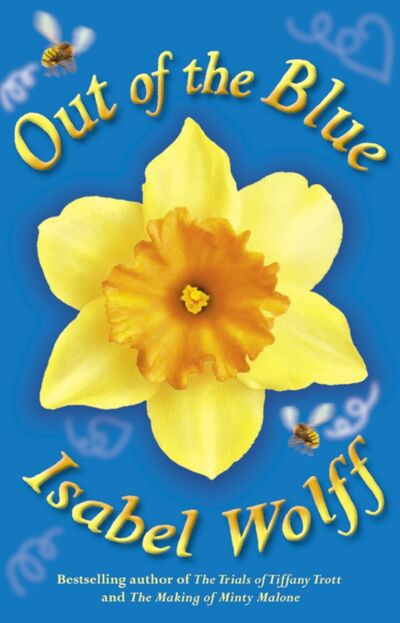Inspiration
When I plan my novels, I usually first decide what job my heroine has, and from that all the other ideas flow. So with ‘Out of the Blue’ I decided that the heroine would be a TV weather presenter. She would be brilliant at forecasting sunshine and showers, but, ironically, she’d be hopeless at predicting the cold snap in her marriage – a cold snap which she herself has partly caused. The heroine is called Faith, and the book’s main theme is, indeed, about faithfulness – about fidelity, and how to preserve it in a long-standing marriage, and about what happens when that fidelity is under threat. Faith has been married for fifteen years – although she’s only 35 – and so she’s curious about the life she might have led had she not married so young. Into the frame comes her Machiavellian best friend, Lily Jago, who, throughout the book, is following a selfish – and entirely misguided - agenda of her own. For Lily – famously unforgiving – has a grudge against Faith’s husband, Peter, and is determined to get her revenge. A casual barbed comment by Lily about Peter’s fidelity at Faith’s wedding anniversary party soon sends Faith into a frenzy of suspicion and jealousy which quickly spins out of control.
The template for ‘Out of the Blue’ is Shakespeare’s ‘Othello’ in which the great military commander, the Moor, Othello, is quite undone by his friend Iago, who is determined to bring him down. Iago decides to arouse Othello’s suspicions – quite unfairly – about his young wife, Desdemona. Tragically, Iago succeeds. Now I’d always thought it sad that Othello, the black character, is the dupe, while the brilliant Machiavel is his white subordinate, Iago. So in ‘Out of the Blue’ I inverted this and made the gullible character, Faith, white, and the brilliant machiavel, Lily Jago, black. The other reason why I decided to make Lily black was because my friend Louise, whose mother was Nigerian, urged me to do so because, she said, there were no powerful, black women characters in commercial women’s fiction. They either existed as politically correct ‘victims’, or not at all.
For Lily is the most powerful character in the book – far cleverer, far wittier, and far more successful and glamourous than her old friend Faith – but she is not particularly nice. She is, instead, a normal person, with her own motives and burning desires. For, from a poor background in St. Kitts – via a scholarship to an English convent school and Cambridge – Lily has risen to become one of the most powerful women in British publishing – she is the editor of the Vogue-like glossy magazine, ‘Moi!’
If ‘Out of the Blue’ is about fidelity in marriage and relationships – it’s as much about fidelity in a friendship too. Faith and Lily are faithful to each other as friends, but Lily’s scheming behaviour (she’s rather like a black Becky Sharp) will bring that friendship to the brink.
Faith and Peter’s marriage also goes to the brink – perhaps beyond reparation. The reader will wonder why Faith believes Lily’s silken lies about Peter – and then, hopefully, will see that Faith is actually following an agenda of her own. She feels like a little break from her dully happy marriage – but she finds the grass no greener on the other side.
Anyway, I won’t tell you any more. Suffice to say my books are, I hope, redemptive and uplifting. Being romantic comedies, they have happy endings; but I believe I’ll keep you guessing to the very end.




